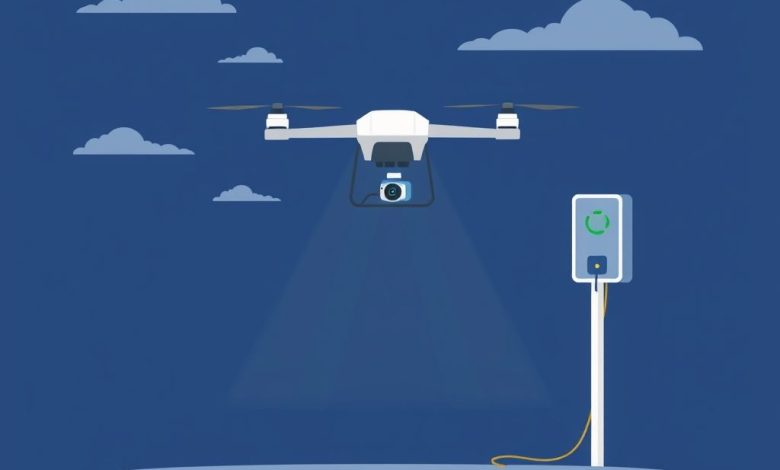Field Service Management for Drone Charging Stations Optimizing Operations and Efficiency

Introduction
Field Service Management (FSM) has become increasingly important in various industries, particularly those involving remote operations and equipment maintenance. With the advent of drone technology, FSM has taken on a new dimension – managing drone charging stations. This article explores the concept of Field Service Management specifically tailored for drone charging stations, examining its importance, challenges, and best practices.
The Rise of Drone Technology in Field Service Management
Drones have revolutionized field service management by enabling real-time monitoring, inspection, and data collection at remote locations. Their ability to reach inaccessible areas quickly and efficiently has made them an invaluable asset in various industries such as agriculture, construction, and environmental monitoring.
However, drones require regular charging, especially when deployed for extended periods or in remote locations. This is where drone charging stations come into play, providing a crucial link between drone operation and efficient field service management.
Importance of Drone Charging Stations in Field Service Management
Drone charging stations are essential components in modern field service management strategies. They ensure that drones remain operational throughout their deployment, maintaining productivity and efficiency in field operations.
Key benefits of implementing drone charging stations include:
- Extended mission duration: By ensuring drones are always fully charged, operators can extend mission times without worrying about battery depletion.
- Improved reliability: Regular charging helps maintain drone performance and longevity.
- Enhanced safety: Well-maintained drones reduce the risk of accidents during flight operations.
- Increased efficiency: With quick charging capabilities, drones can be redeployed faster, optimizing overall field service operations.
Challenges in Managing Drone Charging Stations
While drone charging stations offer numerous advantages, they also present several challenges that field service managers must address:
- Location Selection: Choosing optimal locations for drone charging stations requires careful consideration of factors such as accessibility, weather conditions, and proximity to target areas.
- Power Supply: Ensuring a reliable power supply, especially in remote areas, is crucial for maintaining continuous operation of charging stations.
- Maintenance: Regular maintenance of charging stations is necessary to prevent downtime and ensure consistent performance.
- Security: Protecting valuable drone assets from theft or damage is a significant concern, especially in high-value environments.
- Integration with Existing Systems: Seamlessly integrating drone charging station management with existing FSM software can be complex and time-consuming.
Best Practices for Implementing Drone Charging Station Management
To overcome the challenges and maximize the benefits of drone charging stations, field service managers should consider the following best practices:
- Develop a comprehensive strategy: Create a detailed plan outlining the placement, capacity, and maintenance requirements for drone charging stations across your entire operation.
- Invest in robust charging infrastructure: Choose high-capacity chargers capable of handling multiple drones simultaneously.
- Implement advanced monitoring systems: Utilize IoT sensors and cloud-based monitoring solutions to track charging status, battery health, and station performance in real-time.
- Establish clear protocols for station usage: Define rules for drone access, charging procedures, and maintenance schedules to ensure smooth operations.
- Conduct regular training sessions: Educate staff on proper charging techniques, troubleshooting, and safety procedures related to drone charging stations.
- Integrate with FSM software: Ensure seamless integration with your existing FSM platform to streamline scheduling, dispatch, and resource allocation processes.
- Regularly update and upgrade: Keep charging station hardware and software up-to-date to benefit from the latest technological advancements and security features.
Conclusion
Field Service Management for drone charging stations represents a critical evolution in the field service industry. As drone technology continues to advance and become more integral to various sectors, the need for efficient and well-managed charging stations will only grow.
By understanding the importance of drone charging stations, addressing the associated challenges, and implementing best practices, field service managers can optimize their operations, improve efficiency, and enhance overall service delivery. As this technology continues to evolve, staying ahead of the curve through ongoing education and innovation will be key to success in the rapidly changing landscape of field service management.




